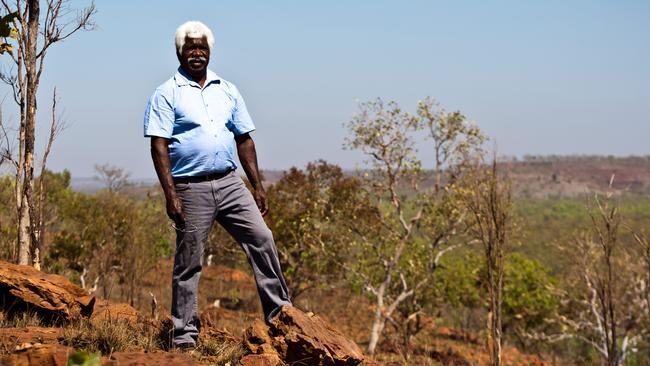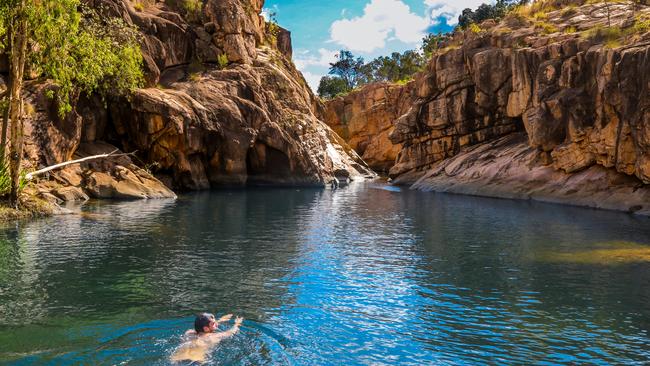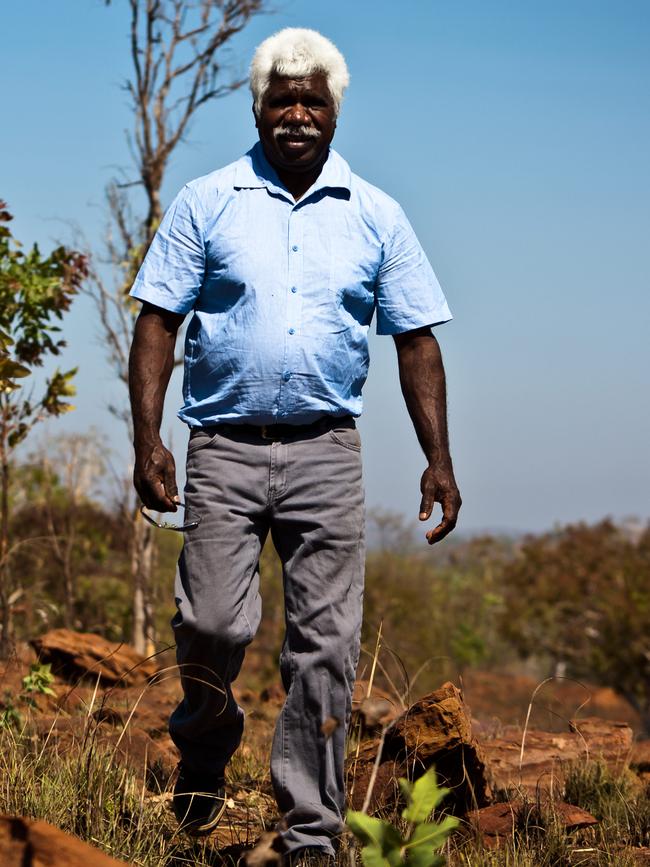Aboriginal Areas Protection Authority launches High Court appeal over commonwealth ‘immunity’ to Gunlom Falls damage
The federal government has been accused of being ‘hypocritical’ over its sacred site laws, while battling to retain its immunity for damage to a Kakadu icon.

News
Don't miss out on the headlines from News. Followed categories will be added to My News.
The battle over alleged damage to one of Kakadu’s most beloved waterfalls will rage on before the High Court, in a challenge to the federal government’s ‘immunity’ from sacred site laws.
Aboriginal Areas Protection Authority will appeal a NT Supreme Court decision which found the federal government was “immune” to any criminal punishment for illegal works on the Territory sacred sites.
On Friday the High Court of Australia agreed to hear the appeal, seven months after the ruling by the full bench of the Supreme Court.
In September the Territory court found the commonwealth was not liable for breaches of the Northern Territory’s Sacred Sites Act, including destruction or damage to sacred sites in Kakadu and Uluru.

The legal arguments circle around alleged damage to one of the most popular attractions in Kakadu, Gunlom Falls.
The Gunlom Falls, which features cascading waters and pristine plunge pool, were closed to the public in 2019 after the construction of a walkway against the wishes of Jawoyn Traditional Owners.
The walkway was approved by the Director of National Parks despite Jawoyn opposition as it came too close to a restricted area of a sacred site.
The works began in April 2019, with rocks, trees, soil and vegetation cleared off the site.
As a result the Traditional Owners closed the site and the AAPA charged the commonwealth with carrying out work at a sacred site, which carries a maximum penalty of two years in prison.

The High Court decision will allow a challenge to the Supreme Court finding that due to “statutory construction” the commonwealth body was not bound by Territory laws protecting sacred sites.
The Director of National Parks had previously entered a plea of not guilty on this technical ground.
AAPA chief executive officer Benedict Scambary said the appeal was important “not just for the Aboriginal custodians of Gunlom but for all Australians who value our nation’s incredible cultural heritage”.
Dr Scambary said the September ruling endangered all sacred sites in the Territory by allowing commonwealth agencies to “consider themselves safe from prosecution”.
“It is hypocritical for the commonwealth to be developing stronger legislation to protect Aboriginal heritage, following the destruction at Juukan Gorge, while also claiming they are above the law,” Dr Scambary said.

AAPA chair Bobby Nunggumajbarr said custodians needed to know their sites were safe.
“Kakadu is an important place for the whole nation,” Mr Nunggumajbarr said.
“It is meant to be cared for under joint management between Traditional Owners and the commonwealth government, but custodians feel disrespected.”
In challenging the “Crown immunity”, Mr Nunggumajbarr said he hoped the High Court would see the importance of respecting and preserving all sacred sites.
An appeal date has not yet been confirmed, but is expected to be held in late 2023.
Originally published as Aboriginal Areas Protection Authority launches High Court appeal over commonwealth ‘immunity’ to Gunlom Falls damage



